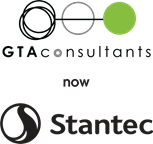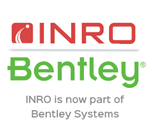Beyond just jobs: A more comprehensive approach to accessibility analysis to build better, more inclusive public transport networks
Harry Smithers & Ross Savedge
Veitch Lister Consulting, Victoria
This presentation was delivered at the 2021 Online Conference Series and until October 2022 is only available to registered delegates and Content Access Pass holders via Interchange. For information on accessing this and other presentations please review the Content Access Pass options.
ABSTRACT
Improving accessibility is a core goal in public transport planning and involves expanding the number of opportunities that people can reach within a given time budget. However, planners should be aware that the choices we make in conducting accessibility analyses can have a big impact on results–and the conclusions we draw from them. Too often analyses can have a singular focus on access to employment in peak periods, privileging the needs of able-bodied white-collar commuters. Such a narrow focus ignores other groups who make up a substantial part of the existing (and latent) rider base. This is a problem, as building inclusive and resilient public transport networks requires that networks serve many different markets. The recent COVID-19 pandemic has demonstrated this, as networks which are highly dependent on commuters have seen their ridership crater.
To help tackle an overreliance on ‘9 to 5’ work trips, transport planners should embrace a more holistic approach to accessibility analysis to better reflect the needs of a broad range of users and trip purposes. Methods for making accessibility analysis more comprehensive includes considering: a wider range of opportunities, more time periods and differing levels of physical mobility.
In this paper we demonstrate what a more holistic approach to accessibility analysis might look like by evaluating access to healthcare, education and recreation in Melbourne. Our analysis covers multiple time periods and attempts to consider both able-bodied and mobility impaired users. We conduct both a traditional and more comprehensive accessibility analysis, demonstrating the importance of understanding what we are factoring into our analyses, and what we are not. It also explores the idea that improvements in access can have a greater or lesser impact on people’s lives depending on their existing level of access to opportunities.
Author(s)
Harry Smithers | VLC
Harry Smithers is a Senior Consultant at Veitch Lister Consulting. He has experience in transport planning and modelling, including in the use of accessibility analysis to refine public transport network design in Melbourne, Canberra and Perth. He is also a member of the AITPM Victorian Committee
Ross Savedge | VLC
Ross Savedge, Principal Consultant at Veitch Lister Consulting, has 13 years of public transport planning experience including extensive work assisting clients with network design, key messaging and implementation of new networks in Auckland and Canberra as well as current work on a bus network development study covering a large swath of Melbourne.








